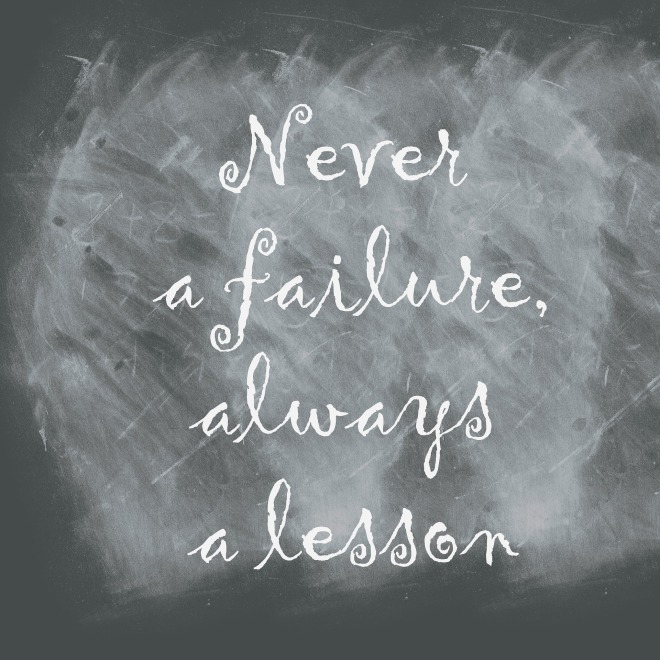Month: January 2018
Burnout

| A cheerful heart is good medicine, but a broken spirit saps a person’s strength. Proverbs 17:22 |
I am increasingly concerned about the trends of the next generation. Social media are causing isolation; isolation can lead to depression, or worse. Suicide rates are sky-high.
This is a topic that is near and dear to me. I use the term “burnout”. It is a generic term indicating a level of dysfunction which can often have many symptoms, including depression, increased substance abuse and isolation.
At one level, it describes an emotional state where a person ceases to function in a normal way, often to the extent of total incapacity. I had coffee with one of my close friends, Robert Boone, yesterday. In the course of talking about my blog, he asked me if I had written about my own burnout experience, and I said no. He said: “You should.” So here goes.
Although this happened over 25 years ago, I remember it well. It’s not something that you forget. I had been functioning reasonably well in my law practice. But outside of my career, I was having to daily deal with financial reverses of 27 real estate investments caused by the recession in the early 1990’s. The result: I really got no rest or time to fill my emotional tank.
I normally attend a bible study on Friday mornings. One Friday morning, however, I went into my office early instead of going to my beloved bible study. I sat down at my desk, and it took several minutes before I realized that I was almost paralyzed.
Somehow, after a couple of attempts, I was able to dial my wife and all I could say was “come get me”. I was unable to drive myself home or do anything else for that matter.
While I couldn’t pinpoint my malaise, it was obvious (to me and everyone else) that I was totally dysfunctional, and even incapacitated. It angered me at first. I couldn’t believe that a person who made a living helping clients make multi-million dollar decisions could not even have the presence of mind to drive home.
Because I appeared to be functioning normally to others, no one noticed. Let me repeat that: no one knew I was crashing before it happened. Not my wife, not my close friends, not my colleagues or even my secretary at my office. While I saw some of the symptoms, even I didn’t see my crash coming.
I felt in control. Until I wasn’t. Most things were going well, work, marriage, exercise, and I maintained good spiritual habits. At my worst, I even had suicidal thoughts, which scared me. My wife was supportive, but didn’t really know how incapacitated I was.
One conversation lingers during my recovery: She told me “You are acting depressed. Get over it!” Yeh, sure. Not that easy. It took over 6 months for me to recover with her help, and the help of my close friends who literally carried me through those dark times.
Why is this topic important? Well, the next generation is suffering high levels of loneliness, depression and suicide rates have skyrocketed in this age group. And sadly, most around them don’t notice the symptoms until it is too late. Sixteen percent of the next generation have suffered digital bullying which can be crushing at any age.
A recent British study showed an increasingly lonely and lost generation, who had lots of “friends” on social media platforms, but few if any real relationships. They noted that more people live alone than in any time of our entire social history. The average digital usage of the millennial approaches over 6 hours a day. “Many who were interviewed [in the study] view work as something that they fit in between Facebook and lunch.”
I recently consoled the leader of Young Life over the suicide of a high school student who had been involved in YL. He was distraught that he hadn’t seen it coming and intervened. What makes it particularly difficult is that social media has caused interpersonal interaction to decline, making it even harder to detect if a person is suffering depression or having suicidal thoughts.
A couple of observations. First, depression is really a chemical issue. Its causes are often due to stress (often perceived stress). Over time, the body stops or slows down its production of serotonin which is the body’s natural antidote. Once started, depression is a vicious downward spiral where the individual pulls back from normal contact with others. The isolation increases, and the spiral gets deeper.
For clarification, stress can be caused by events in life over which we have no control. You cannot control the loss of a friend or family member. An old test going back 50 years is the Holmes-Rhea test, which assigns points to events of life, and the cumulative effect of getting over 200 points on their scale in a year means that you are in the “red zone” and need to be watchful for your coping mechanisms.
Warning signs that I missed included the inability to make simple social decisions. A friend called and wanted to have dinner, and I was unable to process his request. I’ve learned since that your brain protects you from yourself, often shutting down the synapses because you are “overloaded”. It may be episodic, as it was in my case. I could function in one arena, but not another.
Other symptoms:
- Inability to concentrate
- Procrastination
- Weight gain or loss without diet
- Excessive anxiety, worry or guilt
- Persistent fatigue (often sleep becomes difficult)
- Difficulty in making decisions
- Isolation from others
- Increased anger, frustration or hostility to others
- Lack of enjoyment
- Hunger for sweets
- Erratic sleep habits or insomnia
Most depression can be ameliorated by pharmacology – there are many different drugs that help, and basically all they do is supply a level of serotonin that the body is not producing. I won’t say that they are miracles drugs, but they do work, and they worked for me.
To this day, I still take a small dose of a generic to supplement my serotonin. My wife jokingly calls them “happy” pills, although they don’t make me happy, per se.
In the past 25 years, I have met with several dozens of people who have burned out or are suffering depression. I even wrote an essay on it titled: A Consumer’s Guide to Burnout, or All Stressed Out but No One to Blame. It is available to all (see below).
Most causes of burnout are self-inflicted. That’s the good news. Depression can be chemically helped as noted above, and some life-style changes may be needed to return to normal. Getting exercise or taking real restful vacations, for example
I found, for example, that while I was recuperating, my wife and I had to limit our sphere of friends to those whose presence was uplifting and energizing. You know who they are in your life. The people we avoided were ones that drained our energy.
I also had to learn to take a real vacation – one where I was able to get away from it all and permit my emotional batteries to recharge. Many hard charging people skip vacations.
The challenge here is to promote a heightened awareness of burnout and depression in the next generation. The symptoms are subtle, sometimes, but they are noticeable. The one that bothers me the most is isolation which in this day and time is a product of digital media. It was not a factor 25 years ago, but it is today.
MENTOR TAKEAWAY: Mentors need to see that the next generation is highly susceptible to depression. Be educated on what to look for, and reach out to help them find solutions.
RESOURCES: I am happy to provide my Consumers Guide to Burnout to anyone that emails me at my email below. I estimate that I have given over 500 copies away over the past 25 years. It includes the Holmes-Rahe test as an appendix.
An article on the impact of smartphones titled “Have Smartphones Destroyed a Generation?” in the Atlantic Monthly can be found at: https://www.theatlantic.com/magazine/archive/2017/09/has-the-smartphone-destroyed-a-generation/534198/
WORSHIP: Listen to Tommy Walker sing “I Have a Hope”. Tommy Walker – I Have A Hope – YouTube
COMMENT: I would be delighted at comments on this or any other post. You can comment by clicking on the icon at the top of the page, or emailing me at otterpater@nc.rr.com. SUBSCRIBE: You can receive an email notice of each post by clicking on the icon at the top right
The 3 P’s

The Lord says: “These people come near to me with their mouth and honor me with their lips, but their hearts are far from me. Their worship of me is based on merely human rules they have been taught. Isaiah 29:13
This post was inspired by a prison inmate that my wife, Sis, has ministered to over the past 20 years, both in Raleigh and now in Troy, North Carolina. Her name is Teresa Jean Culpepper and she is serving a sentence of life without parole.
Life in prison is harsh. Teresa Jean has survived on her faith. Her 4 children have grown up without her, and she has grandchildren she has never seen. Troy is a small town and she doesn’t get many visitors. We try to visit her when we can and I always come away energized by her faith.
We surprised her recently with a visit and the two hours went by quickly. Teresa introduced me into the idea of The 3 P’s, which stands for Prayer, Praise and Pretend. She said that her Christian faith had consisted of those three P’s for the longest time – at least until she got to prison. Then she couldn’t pretend anymore.
She could go to church on Sunday and pray and sing with the congregation, but that was about it. No real change to her life, and no deepening relationship with Christ.
Once in prison, she had to get real with her faith because no one cared if she was just pretending. She went from being a Kingdom Pretender to a Kingdom Contender, where she learned to lean on Him through every circumstance.
I came away from that visit thinking about The 3 P’s – both what Teresa Jean had learned and how it applied to me. It didn’t take long to realize that I was no different. My Christian life, abbreviated though it was, consisted of trying to be pious and perfect. I was concerned what others would see or think. It was all about externals.
I was like the Apostle Paul – a Pharisee on steroids. In his life as Saul, he was proud of his theology and behavior. External behavior mattered to the Pharisees. They want to be noticed for appearing to be religious and for obsessively adhering to ritual.
Jesus condemned the Pharisees – not for their external behavior, but for their internal heart which was not turned to God. They were Pretenders.
My epiphany came at a FCA conference where Jill Briscoe told a humorous story on herself. She described an incident while her husband, Stuart was speaking at a church. She was seated on stage. They passed the collection bucket, and one of the ushers came on stage. She realized she didn’t have any money to contribute so she just put her hand in the bucket as if she was putting in some cash.
The usher looked in the bucket and realized there was nothing there. Thinking her gift had fallen out, the usher started looking around the floor and even got down on his hands and knees to look under her chair.
She was embarrassed, and later confessed and apologized to the congregation for her actions. She was concerned about the optics of the situation, to her detriment.
Jill’s anecdote impacted me. It was the single most important message I had gotten as a young believer. I realized I could make mistakes and being “perfect” was not God’s objective.
We all fail – we are all mis-wired from birth and even Apostle Paul struggled with perfection in Romans 7 where he says: “For what I want to do I do not do, but what I hate I do.”
The world is full of Pretenders. People who act one way in Church on Sunday, and then their lives the rest of the week don’t match up. Hypocrites and Pretenders kept me from becoming a Christian until I was 38.
For 17 years, my wife was desperate for me to go to church. At times, I relented and went to church with her but that didn’t help. I sat in Sunday school classes taught by persons I knew hung out with folks that did drugs or ran around on their wives. That was not for me. I wanted no part of it. They were Pretenders. They were Phony.
My theology changed when I became a Christian. All of a sudden, I realized that I shouldn’t judge Christianity by the actions of people who were also flawed from birth. Thank goodness God doesn’t judge that way, too. That’s grace.
Still, there are a lot of Pretenders out there doing damage to the Kingdom because their actions don’t measure up to their words. My prayer is that my life honors Christ, but I need God’s help every day to achieve that goal.
As I was writing this, I learned that one of my close friends, Ray Seigler, was moved to Hospice after an unsuccessful attempt at a bone marrow transplant. Heartbreaking to me and all those he touched during his 30 years with Young Life in Raleigh and more recently a marketplace ministry to men.
His ministry and mentoring has produced dozens of men and women who are now in full-time ministry. Ray was not a Pretender. Ever. He was a Kingdom Contender.
The challenge for everyone who is a disciple of Christ to look in the mirror and ask what others see? Is it the real you, or are you just Pretending? Put another way, what will your legacy be when you leave this earth? Will you have impacted others for the Kingdom?
MENTOR TAKEAWAY: Mentors need to examine themselves, and not just their mentees. Are you pretending? Doing Christian things for others to see, but not really depending on God. It takes humility and honesty to evaluate your heart for God. Ask this question: Am I just going through the motions, or am I fully committed?
WORSHIP: Listen to the “From the Inside Out” which reminds us that God’s mercy extends even through our failures. From the Inside Out – YouTube
COMMENT: I would be delighted at comments on this or any other post. You can comment by clicking on the icon at the top of the page, or emailing me at otterpater@nc.rr.com. SUBSCRIBE: You can receive an email notice of each post by clicking on the icon at the top right corner of the site (www.mentorlink.wordpress.com) and entering your email address.
Google GIGO

Pay attention and turn your ear to the sayings of the wise;
apply your heart to what I teach. Proverbs 22:17
Half of the title of this post will be recognized by almost everyone on the planet – the first word, of course. It’s so ubiquitous that it has been turned into a verb – as in, “have you googled it”?
GIGO, on the other hand is a product of the ‘80s, and only a handful of folks remember that it is an acronym for “Garbage In, Garbage Out.” Simply stated, it is a mathematical and computer concept that basically says that the quality of the output depends on the quality of input. Said another way, flawed input of nonsense results in flawed output of nonsense.
There is also the Google Effect, which is now a recognized as a mental illness brought to you courtesy of the internet. It is one eight new mental disorders which are now recognized by the medical field.
The term Google Effect describes a condition where your brain’s ability to retain information and facts has declined because the information can be found online by doing searches on Google or other search engines.
It might not surprise you that Google accounts for 90% of all internet searches. It is the “go-to” source of information. Sadly, as Jack Nicas wrote in the Wall Street Journal, “Google has picked an Answer for You – Too bad It’s Often Wrong.” That’s the essence of GIGO.
Nicas notes that Google has presented itself as the ultimate “authority on truth by promoting a single search result for the answer”. For example, the question “Does money buy happiness?” results in the highlighted answer “There is enough scientific research to prove it.” Really?
If asked “Should abortion be legal?”, Google cites a South African news site saying: “It is not the place of government to legislate against women’s choices.” This is one of the promoted answers, which are outlined in boxes above other results and presented in larger type, often with accompanying pictures or images.
Unfortunately, these answers are often believed by many people as being the definitive answer. According to the WSJ article, “surveys show people consider search engines as their most-trusted source of information, over traditional media and social media.”
While many of answers has sources, not all of the answers do. Answers to the question asking for a list of the “worst CEO’s” had no sources, for example. Google’s “featured” answers has caused a debate about the ability of Silicon Valley companies to influence and manipulate society.
Google’s answer to that charge was that the answers were “generated algorithmically and are a reflection of what people are searching for and what’s available”.. In other words, your answers are partly a function of what people are asking.
This from a company that self-reports that its Top “How to” question is “How to make slime?”, followed by “How to make solar eclipse glasses?” In other words, Garbage In, Garbage Out.
A friend or mine recently sent me a humorous video of a job interview by a millennial (you can listen to it below). Although it is a parody, it has some very poignant truths. When the job applicant is told that she will be required to do research, she responds that she is good at it and can just asked Siri.
For those of you without an iPhone, Siri is the voice on your iPhone or iPad which can do internet searches to answer verbal questions. The employer in the video is dumbfounded, of course, at this answer. The idea that quality research can be done by asking Siri or doing a search on Google is a little mind-blowing.
Here’s why: A study by an analyst of the tech industry showed that Google’s search engine answered 5,000 questions correctly with a 97.4% accuracy. Problem is that Google handles trillions of queries a year and a 2.6% error rate means that billions of answers are wrong. Other services (Amazon’s Siri, and Microsoft) are not as accurate.
“Searching on a mobile device is very different from a desktop computer. Speed and simplicity really matter” says the President of Google’s parent. “It’s why the best answer is usually THE answer” [emphasis added]. Or not, if it happens to be wrong, but too often people trust the answer to their detriment. The answers may be entirely wrong, incomplete or irrelevant.
An example from the Wall Street Journal article: If you do a search “Why Are Komodo dragons endangered”, the featured answer is: tourism, volcanos and fire. Problem is that the answer comes from a Canadian elementary students’ report listed on-line. Oh, and by the way, Komodo dragons are not endangered.
The challenge here is that the next generation is wedded to getting its answers from Google and other internet sources. According to a story in this morning’s Wall Street Journal, close to half of the American population gets its news from Facebook.
The problem with that is that Facebook’s algorithms will choose what stories you are likely to read, so you ultimately only get one side of a story. If it is biased, then so be it. That’s a slippery slope.
For mentors and parents, we need to challenge the next generation to read more. Answers can be nuanced and detailed and not dumbed down into a single sentence as if that was all there is to a problem or an issue. We also need to find creative ways to engage the next generation in ideas like absolute truth from scripture. There are no wrong answers in the Bible.
MENTOR TAKEAWAY: Be sure to watch the job interview video below. It gives a humorous look into the millennials mindset, and is instructive that their thought processes are often flawed by thinking that Google can be trusted for all answers to all questions.
FURTHER STUDY: A humorous video job interview with a millennial: https://vimeo.com/239050403/ cdd07b248e
Jack Nicas Wall Street Journal article on Google’s Wrong Answers: https://www.wsj.com/articles/googles-featured-answers-aim-to-distill-truthbut-often-get-it-wrong-1510847867
For articles on the Google Effect: http://academicearth.org/electives/internet-changing-your-brain/
An article on Digital Heroin: http://miami.cbslocal.com/2017/03/03/doc-claims-too-much-screen-time-turns-kids-into-digital-junkies/
WORSHIP: Listen to Open the Eyes of My Heart by Michael W. Smith: Open the Eyes of My Heart – YouTube
COMMENT: I would be delighted at comments on this or any other post. You can comment by clicking on the icon at the top of the page, or emailing me at otterpater@nc.rr.com. SUBSCRIBE: You can receive an email notice of each post by clicking on the icon at the top right corner of the site (www.mentorlink.wordpress.com) and entering your email address.
Lessons – 2017

These things happened to them as examples and were written down as warnings for us, on whom the culmination of the ages has come. 1 Corinthians 10:11
I debated whether I should follow the footsteps of other blog writers who crank out a topic like this in the early part of a new year. I reflected on my own 2017 as to whether there were any “Aha” moments, and while these weren’t mountain top epiphanies, they were important insights.
So, here goes:
Getting older has some pluses and minuses. The plus side of the equation is that you have time to do things you never had before – like taking Sarah, our 11-year-old granddaughter, on a 3-week European trip. The negative side of this is that, for many, health issues begin to creep in and limit your activities. My sister-in-law, who loves to travel, is now dealing with health issues that may sideline her. My advice: travel when you can because you can’t count on good health forever.
Retirement is not an end destination, but actually the beginning of a new phase of your life. Most people facing retirement focus on the financial side, but often neglect thinking about what they are actually going to do now that going to work is not required. Years ago, an accountant friend of mine asked me when I was going to retire. I said I was thinking about it. He leaned across the table and said: “Golf is not enough”. He was right. Retirement planning is more than financial planning.
Staying engaged in life is essential for your mental health. My wife and I have devoted our retirement years to spending as much time with our grandchildren as possible. Our goal is to leave our fingerprints of who we are all over them. It brings a lot of joy into our lives, which is something I could not have predicted when we got married. This year, we are planning a trip with the two eldest granddaughters – ages 16 and 18. Our trip planning is interactive, and we will make suggestions of things to do and places to visit for their input.
Mentoring is a highlight of my time. I have met with a number of men – from 17 to 49 – over the years. All are in different phases of life and often facing issues. It’s hard to predict the impact of my involvement because of the short time horizon, but I hope my investment in each of their lives will be beneficial. Every meeting is a new life experience for me.
My faith journey deepens. It’s something new every day. In my travels, I have friends in sub-Saharan Africa. Many face tyrants or despots in control of their countries (like Cameroon) who have committed human atrocities – torture, rape, imprisonment, murder or, as one of my friends said, “mystical” disappearances of people never to be seen again. Yet they persevere, facing danger daily. They are undaunted in their efforts to continue to bring the gospel to others. Our “problems” in the western world pale by comparison. We don’t start our day wondering if we will be safe. I am inspired by my friends.
Interacting with the next generation is important. They are our leaders of the future. They are looking for mentors but often rarely find them from the older generation. It is an unmet need that could be filled by a few good men or women willing to invest in someone else, just as Jesus invested in his 12 disciples.
Miracles still happen. There is no explanation for having been run into on my bike by a car doing 35 miles per hour and walking away. None. The EMS guys couldn’t believe it, nor could the doctor at the Emergency Room. He was sure there was something wrong with me since my body did $1,000 of damage to the front end of the car. That’s a miracle.
I have spent my entire life looking at life in the rearview mirror, often asking myself what I learned from an experience or episode. If it was a significant event, I often wrote about it, such as when I had prostate cancer or burned out several years ago. My goal was to pass on my experiences to others in an effort to help them in similar circumstances.
I pray that you will look back and examine what your experiences were in 2017 and see what they have taught you so that you can build on them in the coming year.
MENTOR TAKEAWAY: Passing on the lessons life has taught you is the essence of mentoring. Think back on this past year for some insights to give to your mentees in the future.
WORSHIP: Listen to Christ Tomlin sing a version of Amazing Grace, reminding how we live under God’s grace all the time. http://www.worshiptogether.com/songs/amazing-grace-my-chains-are-gone/
COMMENT: I would be delighted at comments on this or any other post. You can comment by clicking on the icon at the top of the page, or emailing me at otterpater@nc.rr.com. SUBSCRIBE: You can receive an email notice of each post by clicking on the icon at the top right corner of the site (www.mentorlink.wordpress.com) and entering your email address.

